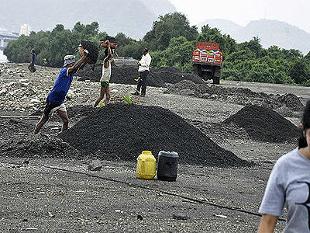New Delhi, May 22: The number of COVID-19 cases averted due to the lockdown is in the range of 14-29 lakh, while the number of lives saved is between 37,000 and 78,000, the government said on Friday citing various studies, and asserted that the unprecedented shutdown has paid “rich dividends” in the fight against the pandemic.
The lockdown in India has been a timely, graded, proactive and pre-emptive public health measure to fight the COVID-19 pandemic and has been part and parcel of the government’s overall strategy, Dr V K Paul, Member (Health), NITI Aayog, and Chairman, Empowered Group 1, said at a media briefing on the COVID-19 situation.
The government imposed the nationwide lockdown from March 25 to prevent the spread of the novel coronavirus and it is currently in its fourth phase.
Like the number of cases, the growth rate of number of COVID-19 deaths too has fallen significantly due to the lockdown, marking a notable difference between pre-lockdown and post-lockdown situations, he said.
At the briefing, Pravin Srivastava, Secretary, Ministry of Statistics and Programme Implementation gave model-based estimates on COVID-19 cases and deaths which have been prevented due to the lockdown.
As per Boston Consulting Group's model, the lockdown saved between 1.2 lakh and 2.1 lakh lives, while the number of COVID-19 cases averted is between 36 lakh and 70 lakh, he said.
According to Public Health Foundation of India, nearly 78,000 lives have been saved due to the lockdown, Srivastava said.
Citing a model by two independent economists, he said that around 23 lakh COVID-19 cases and 68,000 deaths have been averted due to the lockdown.
Some independent experts, including retired scientists, have calculated that around 15.9 lakh cases and 51,000 deaths have been averted due to the lockdown, Srivastava said.
A joint study by the Ministry of Statistics and Programme Implementation and the Indian Statistical Institute found that around 20 lakh COVID-19 cases and 54,000 deaths were averted due to lockdown, he said.
The number of COVID-19 cases averted due to the lockdown is in the range of 14-29 lakh, while the number of lives saved is between 37,000 and 78,000, the official said.
“We are fully confident that the lockdown, with full public cooperation, has reaped rich dividends,” Srivastava said.
The strong defence of the lockdown, comes a day after the health ministry said the period of lockdown has been gainfully utilized to ramp up the health infrastructure, with around 3,027 dedicated COVID-19 hospitals and 7,013 care centres being readied across the country to fight the disease.
The announcement on Thursday came after some media reports questioned the country's preparedness to deal with the highly infectious disease.
"There are reports in a section of the media about some decisions of the government regarding the lockdown implementation and response to COVID-19 management. The period of the lockdown has been gainfully utilised to ramp up the health infrastructure in the country," the ministry had said.
Addressing the press briefing on Friday, joint secretary in the health ministry Lav Agarwal said 48,534 COVID-19 patients, which is about 41 per cent of the total cases, have recovered so far. As many as 3,234 patients have recovered in the last 24 hours, he said’
The COVID-19 mortality rate has dropped from 3.13 per cent on May 19 to 3.02 per cent as focus was on containment measures andclinical management of cases, Agarwal said.
An ICMR official said 27,55,714 tests for COVID-19 have been conducted till 1 pm Friday with 1,03,829 tests done in one day. Over 1 lakh tests for COVID-19 have been done each day for the last four days, the official said.
The growth rate of novel coronavirus cases witnessed a steep decline from Apr 4 when lockdown put a brake on the speed of increase of cases, V K Paul said.
The number of COVID-19 cases would have risen exponentially had the lockdown not been implemented, he said, adding that the doubling rate of cases was 3.4 days when the lockdown started and it is 13.3 days at present.
The COVID-19 outbreak in India has remained confined to limited areas with 80 per cent of active cases in just five states, Paul said
He said around 80 pc of COVID-19 deaths have been in Maharashtra, Gujarat, Madhya Pradesh, West Bengal and Delhi.
 New Delhi, Sep 28: In a blow to brick-kiln industry and road contractors, the National Green Tribunal has banned digging of earth across the country for making bricks and roads without prior environment clearance (EC).
New Delhi, Sep 28: In a blow to brick-kiln industry and road contractors, the National Green Tribunal has banned digging of earth across the country for making bricks and roads without prior environment clearance (EC).





Comments
Add new comment